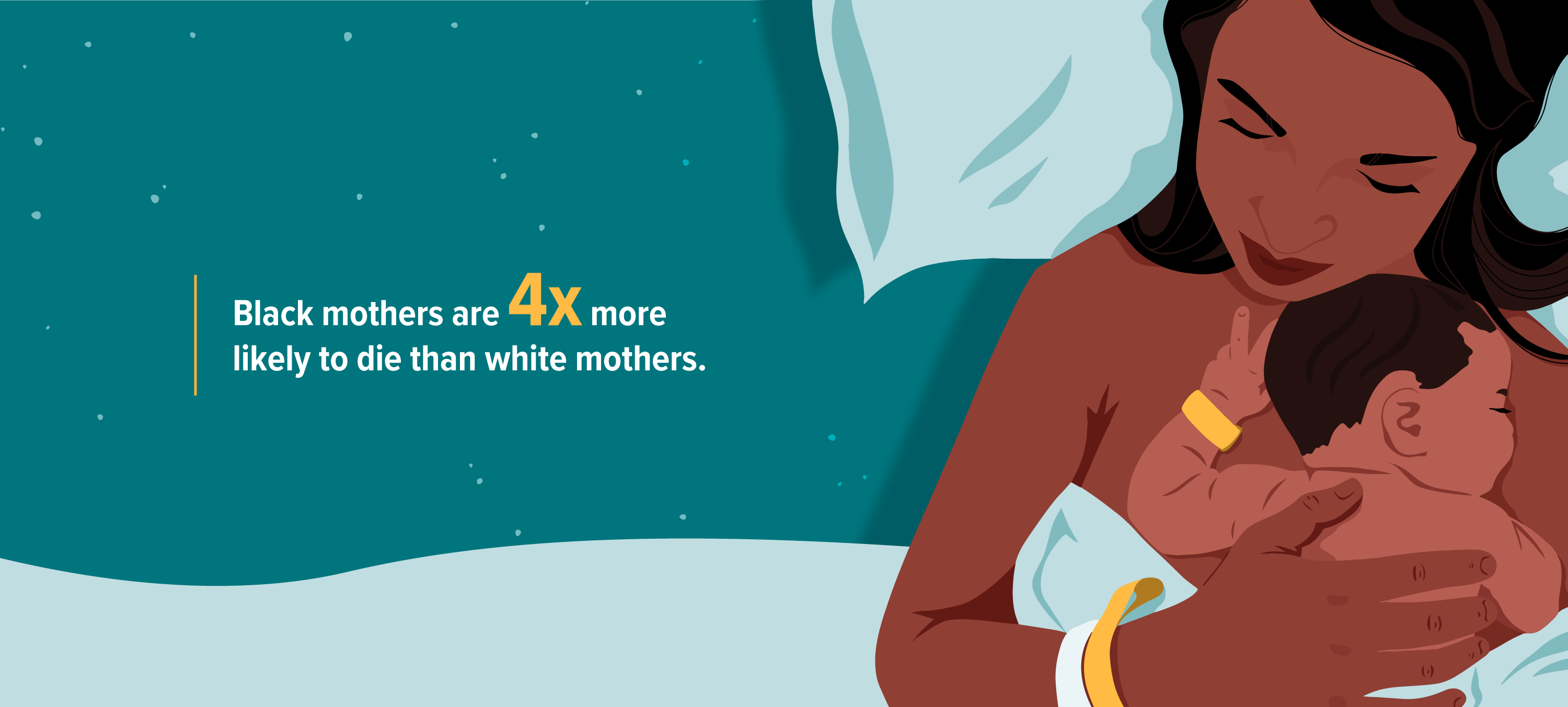One of the many areas where racism is commonly overlooked is in the healthcare area. Due to racism and discrimination in healthcare people of color are less likely to have health insurance which blocks their access to medical care in the first place, and compared to white Americans they receive a lower quality of care, experience more illness, have worse outcomes, and have a lower life expectancy. The disparities have long been documented. Black people are more likely than white people to die from cancer. They are more likely to suffer from chronic pain, diabetes, and depression. Black children report higher levels of stress. Black mothers are more likely to die in childbirth. One example of the racial disparity in healthcare is life expectancy. Asian Americans have a life expectancy of 86.3 years, white Americans 78.7 years, Native Americans 77.4 years, and Africans Americans 75.0 years. These disparities are not only due to race but also due to environmental factors, poverty, where you live, and level of education. This gap in life expectancy has grown worse with Covid-19 especially for African Americans. White men’s life expectancy dropped by eight-tenths of a year during the first six months of 2020, while Black men’s life expectancy dropped by 3 years. Before Covid though, the gap in life expectancy between African Americans and white Americans was closing but Covid has expanded the gap again.

Over the past years there has been a realization of how much racist beliefs persist in the medical field. In 2016 a study looked at white doctor’s and nurses’ perceptions of African Americans and found that many medical students and doctors truly believe that African Americans have a higher tolerance for pain than all other races.There is also a belief that Black people have thicker skin than white people. This thinking gives way to a false belief in biological differences between races, and ends up with African Americans not getting treated properly when they are in pain or being misdiagnosed.

Racism is also seen in maternal and infant mortality. While the U.S. has one of the worst maternal and infant mortality rates compared to other developed countries, in the U.S. non-hispanic Black women are three to four times more likely to have a maternal death than white women while their babies are dying at twice the rate of white women. Black women also face higher risks and complications during pregnancy. For example this was recently seen with tennis athlete Serena Williams after she almost died giving birth to her daughter.
One of the last instances of racism in the health care field that I wanted to mention has to due with the opioid epidemic. This is not only an example of racism but also how racism can negatively affect white people as well. As Black people are not taken seriously when they are in pain, Black people are also more assumed to be drug addicts by white doctors. Therefore, due to racial bias in pain medication prescriptions Black people are half as likely to be prescribed opioid medicines than white people. As white doctors were more reluctant to give pain medication to Black patients there was less chance of them developing an addiction. As white doctors were more likely to give pain medication to white patients there was more of a chance of them developing an addiction, and then dying of overdose. This is looked at as one of the reasons why the opioid epidemic is primarily affecting white, specifically poorer, communities more than communities of color.

Your post is so interesting. It’s so sad to see racism come up in various ways in society. Bias stumps the ability of people to retrieve help which is inhumane. Everyone who needs help should be assessed equally and it’s a shame that society uses racial biases to prevent fairness. People should never see their identity as an obstacle to get necessary aid. Though there is much progress still needed to be done, its writers like you and posts like this that spread awareness on the matter and pressure society to change their ways.